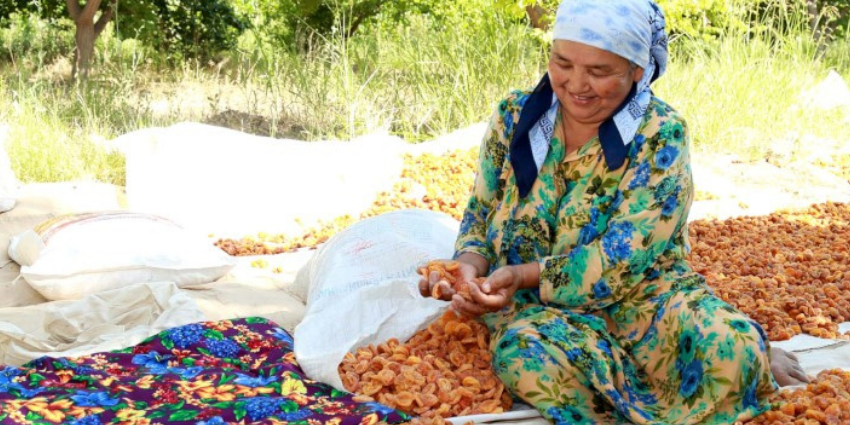[INTERVIEW] Humo, beneficiary of the Solidarity Bankers program

© EBRD
Solidarity Bankers is a skills volunteering program launched by the Grameen Crédit Agricole Foundation and Crédit Agricole SA in 2018 with a dual objective: on the one hand, to support microfinance institutions and social impact businesses financed by the Foundation with technical assistance, and on the other hand, to promote the skills of Group employees who wish to get involved in projects with a strong social impact.
HUMO is a microfinance institution in Tajikistan that aims to support vulnerable and underserved populations living in rural areas through financial and advisory services for small businesses. It was supported in 2020 by Julien Leroy, Innovation Leader at CA-CIB.
A look back at the program with an interview with Firdavs Mayunusov, Financial Manager at HUMO.
1) Why was optimizing your business model important for your institution?
The financial sector has long been one of the most conservative and non-digitized industries in the world. Experience shows that the introduction of innovations and new technologies significantly increases competitiveness and improves customer experience. However, in order to develop cutting-edge innovations and solutions, it is necessary to rethink our institution's business model and organizational structure.
Humo was founded 17 years ago to improve access to finance and social development in Tajikistan. Today, financial product requirements are evolving rapidly. Transitioning from a microfinance institution to a technology company is essential. It's key to achieving our mission and unlocking the region's potential. Therefore, we've begun our digital transformation and are making the company's structure more flexible and product-oriented.
2) What did you expect from the Solidarity Banker? Did the results match your expectations?
We expected the Solidarity Banker to provide us with advice and guidance on the company's transformation. Thanks to him, we were able not only to understand our weaknesses, but also to find new growth opportunities and strengthen our business model. Today, two years later, we have implemented most of the recommendations and launched the digital transformation. We were able to take a fresh look at the business model and develop a transformation strategy. The results of the mission exceeded our expectations.
3) What were the priorities defined following the recommendations made?
We reflected on the role of innovation and organizational change in business development. Flexibility and speed are essential for our company to be competitive in the market. So, we opened a new Product Department to manage cutting-edge financial solutions. Then, we began rethinking the customer experience and opened a sales department. Finally, we embarked on a digital transformation and implemented agile methodologies. This has allowed us to become one of the most technologically advanced players in the market.
4) 2 years and a few waves of Covid-19 later, what remains of the Solidarity Banker at Humo?
Over the years, Humo has changed its organizational structure, strengthened its business model, and identified opportunities. It optimized core business processes and minimized bureaucracy. The company became more agile, strategically focused, and launched several digital products. We attracted new user segments and became one of the leading FinTech companies in Tajikistan. Thanks to the Solidarity Banker, Humo was able to choose the right development path and realize its growth potential. Today, Humo is undeniably one of the market leaders despite the challenges of Covid-19, legislation, and socioeconomic development.



Leave a Reply
Want to join the discussion?Feel free to contribute!